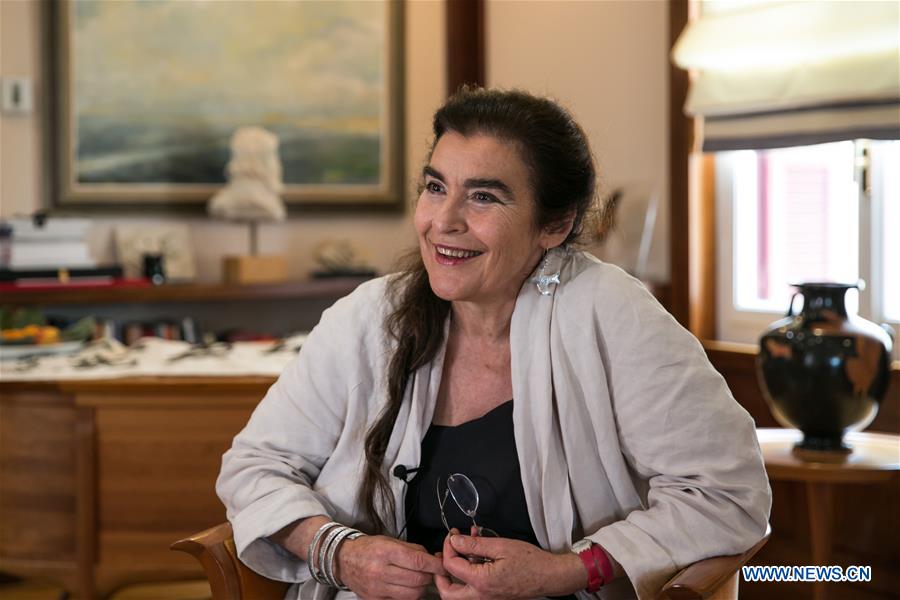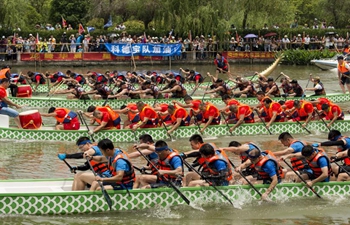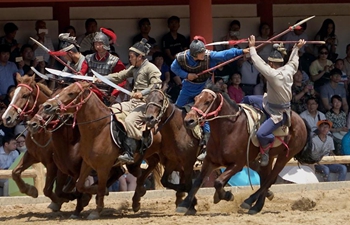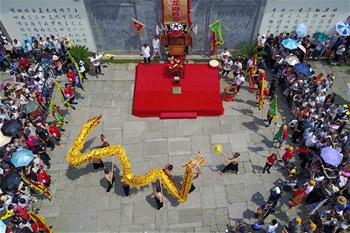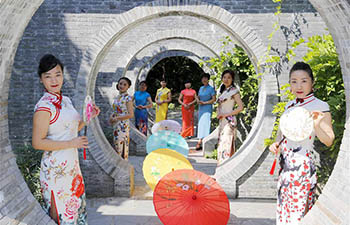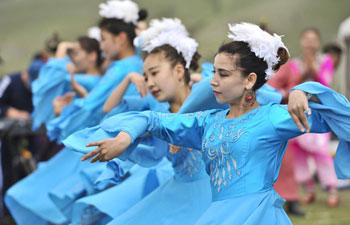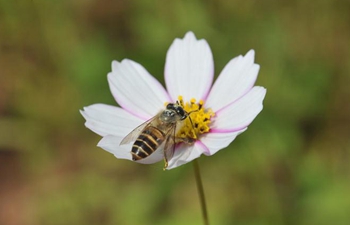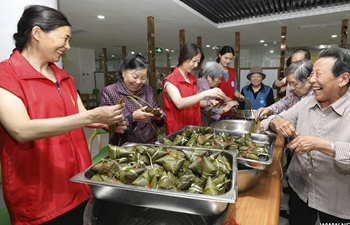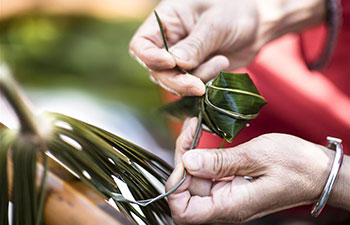Greek Culture Minister Lydia Koniordou talks during an interview with Xinhua in Athens, Greece, on May 17, 2017. Greece and China can learn a lot from each other by joining forces in culture, Greek Culture Minister Lydia Koniordou told Xinhua. (Xinhua/Lefteris Partsalis)
by Maria Spiliopoulou
ATHENS, May 30 (Xinhua) -- Greece and China can learn a lot from each other by joining forces in culture, Greek Culture Minister Lydia Koniordou told Xinhua.
A few weeks after the official launch of the China-Greece Cultural Exchanges and Cultural Industry Cooperation Year in Athens, the Greek official talked about the prospects of Greek-China collaboration in this field and culture's role in facilitating and promoting relations among peoples.
She shared her experience from her three visits to China and her dream about bringing younger generations closer to Greece's rich cultural heritage.
An acclaimed actress and director specializing in ancient Greek drama, Koniordou first visited Beijing in 2004 with the National Theater of Greece to perform "Antigone" of Sophocles. She will never forget the standing ovation the audience gave to the Greek artists, she said.
In 2014 and 2015 she was invited by Shanghai Theater Academy to do a workshop on ancient Greek drama and then direct a performance of ancient Greek drama by third-year students.
"We believe that our ancient culture, Greek tragedy is part of the world heritage now and can really throw a light to different cultures. It is not just Greek," she told Xinhua.
"So we applied this play into Chinese reality and that was a wonderful experience," she said.
Koniordou started learning Chinese for this course and gradually discovered more and more links between the two countries. She found analogies in culture, philosophy and art, and felt like home in her Chinese world.
"We believe that there are a lot of things that we can learn from each other. When I was in Shanghai the proof that we have so much in common is how I communicated especially with the younger generation, but also the teachers and the faculty in a very immediate way," she noted.
"We had no barrier in our communication and this was wonderful. I felt we have so many things that we can exchange," she stressed.
For Koniordou, the Greece-China Cultural Exchanges and Cultural Industry Cooperation Year offers a great opportunity to strengthen bilateral ties in the cultural sector and pave the way for the enhancement of collaboration in other fields in the context of the Belt and Road Initiative.
She sees culture as a vital bridge supporting creative dialogue, understanding and the welfare of citizens.
"We are now in a position that the whole world is re-evaluating its course. We want to know where we want to head as humanity, what kind of world we want to live in. So this is a very important moment and we believe that culture is a way to help us understand who we are and where we want to go," the Greek official said.
"Also culture can really connect with sustainable growth, can be connected with the welfare of the citizen," she underlined.
"This is what we are trying to do in Greece, to connect culture with the education of the younger generation. Because it is very important for each generation to know the value of culture and to know what it can offer to their lives," Koniordou said.
On Sino-Greek connection through culture, the framework is already there, she noted, referring for example to two MOUs signed recently on co-production of films and the translation of literary works.
The two sides also plan exchanges of treasures between museums, theater and musical exchanges, as well as collaboration in restoration and preservation of antiquities and the battle against illicit trafficking of cultural heritage treasures, she said.
"We really look forward to knowing Chinese culture and the different expressions of Chinese culture in Greece. I think the Greek people are very interested in this. I felt also the same in China," Koniordou said.
The Greek minister believes that culture can help make the world a better place.
"Greece is going through a difficult period, but we need to stress the importance of keeping open this dialogue and exchange of culture, because we believe that in difficult moments citizens -- and we see this happening now in Greece -- want to connect with their identity more than ever," she stressed.




